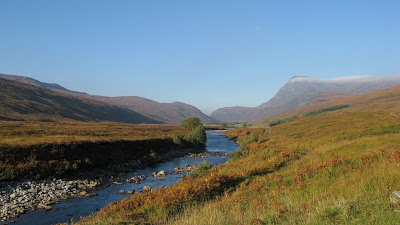We can't destroy creation. Alpha Centuri is going to be just fine, climate change or not. We can't even destroy the planet. It's survived meteors, tectonic upheavals and ice ages. It's a pretty durable lump of rock.
Nonetheless, I frequently see people claiming that it is arrogant to think that tiny little humans are having such a large impact of the functioning of planetary-scale systems as is implied by the mainstream science of climate change, ocean acidification, soil degradation, biodiversity loss and so on. Sometimes this objection has a dose of piety injected: God is in charge of the world; we can't damage it (at least, not more than superficially or locally).
But isn't it arrogant (and historically ignorant) to think that our capacity for destruction does not extend to wiping out entire ecosystems? We have done so on colossal scales in recorded history. Vast forests have disappeared in the face of the axe and bulldozer; seemingly endless prairies have all but disappeared under the plough. Haven't we grown to
seven billion and rising, spreading into every continent and visibly altering huge tracts of the earth's surface? Why would we be surprised at anthropogenic climate change or ocean acidification or biodiversity decline when we consider our collective effects in a wide range of areas? Aren't our
nuclear arsenals capable of obliterating the vast majority of life on earth at a moment's notice? Haven't we fundamentally altered the appearance, behaviour and distribution of species through millennia of domestication and exploration? Haven't we sent thousands of recorded species (and likely tens or hundreds of thousands of unrecorded species)
extinct? Haven't we damned and/or diverted the majority of the world's great rivers, and even (almost) dried up what was previously the fourth largest lake in the world? Haven't we flung craft into orbit that can monitor many of these changes in astonishing detail?
If human civilisations (even ones who considered themselves Christian) have risen and fallen in the past, why would we assume that ours will be immortal? And if human actions have contributed to historical collapses, why would we rule out such influence today?
If we have done all this, then if we have also dug up and burned over 300 billion tonnes of fossil hydrocarbons, might not here, as in so many other places, our capacity for altering our surroundings be manifest? If we have changed the chemical composition of the atmosphere and oceans in measurable and statistically significant ways, might not these changes have far-reaching consequences and implications for life (human and otherwise) throughout the atmosphere and oceans? If we can measure the changes in radiation that occur as a result of these alterations, if we can measure shifts in the timing of flowerings, growing seasons, hibernations and migrations, observe
massive and alarmingly rapid alterations to the frozen places of the planet, notice systematic and unprecedented shifts in humidity, precipitation,
temperatures over land and sea (and in the waters) and
rising sea levels - if we can observe these changes occurring and have an
excellent theory that accounts for all the data and which has withstood every criticism levelled against it, seen off all competing explanations and gained the acceptance of every single relevant
scientific body of national or international standing in the world, then what is to be gained by withholding judgement? And if we have good reason to be deeply concerned about the already manifest and likely future consequences of the observed, modelled and projected trends, if these consequences threaten the habitability of the planet and its ability to provide
sufficient food for our societies and habitat for all our
fellow creatures, if our
neighbours are deeply vulnerable to these changes, if the most vulnerable are also those who have done least to contribute to the problem (the poor, future generations and other species), then might not Christian discipleship embrace humble acceptance of our predicament and an earnest search for responses that express repentance, care and
prudence?
Furthermore, if many of the social and personal changes required are not simply consonant with, but already actively required by, Christian discipleship due to the rejection of idolatry,
greed and consumerism, if the infrastructural changes are both affordable and viable, if those most vocally opposed to these changes have a history of engaging in
less than honest advocacy and have a business practice that currently
kills millions of people annually, then might we not have a strong case for prophetic witness in defence of the goodness of the created order, in pursuit of justice for the suffering, in the hope of wise care for
our children's future?














